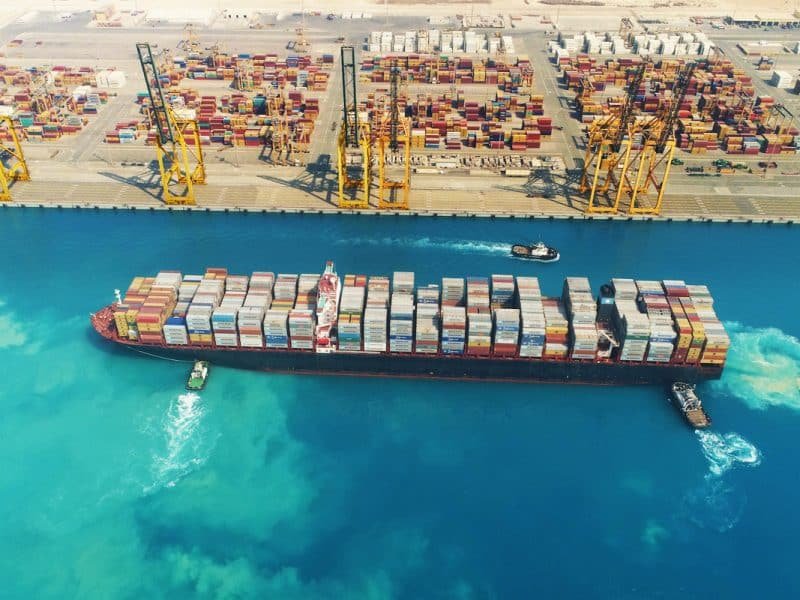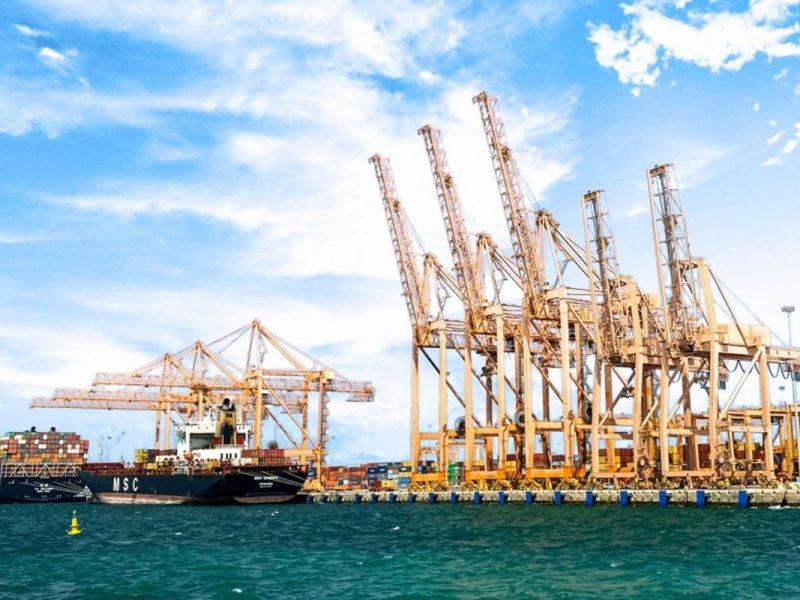Saudi Arabia has taken a bold leap forward in its economic transformation journey with the signing of $586 million worth of port privatization agreements. These deals mark a significant moment in the Kingdom’s commitment to expanding and modernizing its logistics sector, while also strengthening its ambition to become a top global trade hub under the Vision 2030 agenda.
The port privatization drive isn’t just about infrastructure—it’s about building a smarter, more efficient, and competitive Saudi Arabia that thrives in the 21st-century global economy.
Privatization as a Catalyst for Logistics Modernization
The newly signed agreements will transfer the operation and development of several key port terminals and logistics services from government control to private sector hands. This strategic move is set to enhance service quality, accelerate innovation, and increase operational efficiency. The deals include long-term concessions with both Saudi and international logistics operators, forming a strong public-private partnership model.

The privatization projects are being overseen by the Saudi Ports Authority (Mawani), in collaboration with the National Center for Privatization & PPP (NCP). Their shared objective is to revitalize and streamline port operations, enhance competitiveness, and attract foreign investment in the logistics space.
Saudi officials have confirmed that the projects span ports across Jeddah, Dammam, and Jubail, including terminal upgrades, warehousing solutions, cold-chain logistics, and smart port technology integrations.
Vision 2030: Logistics as a Strategic Growth Engine
Under Vision 2030, Saudi Arabia is on a mission to reduce its reliance on oil revenues and diversify its economy. A key pillar of this vision is transforming the Kingdom into a leading logistics powerhouse that connects three continents—Asia, Europe, and Africa.
To meet this ambitious goal, Saudi Arabia has committed billions toward infrastructure development, with special focus on seaports, rail networks, air cargo, and land logistics zones. The new privatization deals support this larger effort, unlocking the potential of Saudi’s coastal trade gateways to serve as hubs for international commerce.
The $586 million port deals will not only improve the quality of port services but also reduce bottlenecks, optimize cargo flows, and stimulate trade throughout the Gulf region.
Private Sector at the Helm: A New Era of Efficiency
With private companies now taking the lead in port operations, we can expect a higher standard of logistics service, improved turnaround times, and the implementation of cutting-edge technologies. Several global and local logistics giants, such as Maersk, DP World, CEVA Logistics, and DSV, are either directly involved or have expressed strong interest in supporting these upgrades.
Take for instance the newly announced logistics park by Maersk at Jeddah Islamic Port, a major hub that handles more than 60% of Saudi Arabia’s container traffic. This facility will bring automated warehousing, e-commerce fulfillment, and cold-chain capabilities to a port that is already seeing double-digit annual growth in cargo volumes.
Similarly, King Abdulaziz Port in Dammam, the main gateway to eastern Saudi Arabia, is undergoing transformation with the help of advanced digital tools and green logistics solutions. The involvement of private sector partners ensures not only funding and expertise but also accountability for outcomes—something rarely possible under traditional public sector models.
Economic Impact: Job Creation, Innovation, and Local Content
Beyond physical upgrades, privatization will lead to long-term economic benefits for Saudi citizens. As port services become more complex and technologically advanced, thousands of jobs in supply chain management, data analytics, customs facilitation, and port engineering are expected to be created.
The Saudi government has mandated that at least 60% of the value chain in these privatized services must come from local content by 2025. This ensures the development of domestic talent and industries while opening doors for local companies to thrive alongside global players.

Meanwhile, the shift toward smart logistics—AI-driven traffic control, automated cranes, IoT-enabled tracking, and cloud-based port community systems—will drive innovation and put Saudi ports in line with the world’s best, from Rotterdam to Singapore.
Green and Smart Ports: A Sustainable Future
Sustainability is another major theme embedded in these port transformation deals. With rising global pressure to reduce carbon emissions from shipping and logistics, Saudi Arabia is integrating renewable energy sources, electrified equipment, and digital optimization to minimize its ports’ environmental footprint.
Initiatives include the deployment of electric trucks, solar-powered warehouses, and the promotion of eco-friendly fuel bunkering facilities. These green upgrades not only align with international climate goals but also improve operational efficiency and reduce long-term costs.
Mawani has already committed to reducing port-related emissions by 50% by 2030, a target that will be driven largely by this new wave of privatized, tech-enabled operations.
Port Traffic on the Rise: Early Signs of Success
Saudi Arabia’s port strategy is already producing results. According to Mawani, container traffic rose by over 13% year-on-year in May 2025, with more than 720,000 TEUs (Twenty-Foot Equivalent Units) handled across the Kingdom’s ports. This growth is attributed to improved customs processing, optimized vessel scheduling, and better logistics services enabled by private operators.
Beyond sea freight, Saudi Arabia is also connecting its ports to new dry ports, industrial cities, and an expanding rail network that links Dammam to Riyadh and will soon extend toward the Red Sea and Gulf regions. These intermodal solutions are designed to reduce dependency on road transport, cut shipping costs, and increase cargo throughput.
Building Global Trade Links
Saudi Arabia’s transformation is gaining international attention. Investors and global logistics companies are increasingly viewing the Kingdom as an ideal gateway for East-West trade, supported by geopolitical stability, business reforms, and growing demand from Africa and Asia.
The port privatization push serves as a magnet for global capital, further enhancing the Kingdom’s reputation as a logistics hub. With landmark events such as Expo 2030 in Riyadh and the FIFA World Cup 2034 on the horizon, the need for world-class logistics infrastructure is more pressing than ever.

These privatization agreements are not just infrastructure contracts—they are confidence signals to the global market that Saudi Arabia is open for business and fully committed to international best practices.
Challenges and the Road Ahead
While the shift to privatization offers many benefits, it also comes with challenges. Aligning regulatory frameworks, managing labor transitions, integrating legacy systems, and maintaining service standards across multiple stakeholders require clear governance and transparency.
The Kingdom is actively addressing these issues. Training programs, investment incentives, and digital transformation roadmaps have been launched to support a seamless transition. Moreover, regular performance reviews and KPIs will be enforced across all privatized port assets to ensure continuous improvement.
Looking forward, additional privatization rounds are expected in inland terminals, bonded zones, and intermodal hubs, creating a seamless end-to-end logistics ecosystem.
Do follow UAE Stories on Instagram
Read More: UAE’s Proactive Move to Keep Skies Secure













